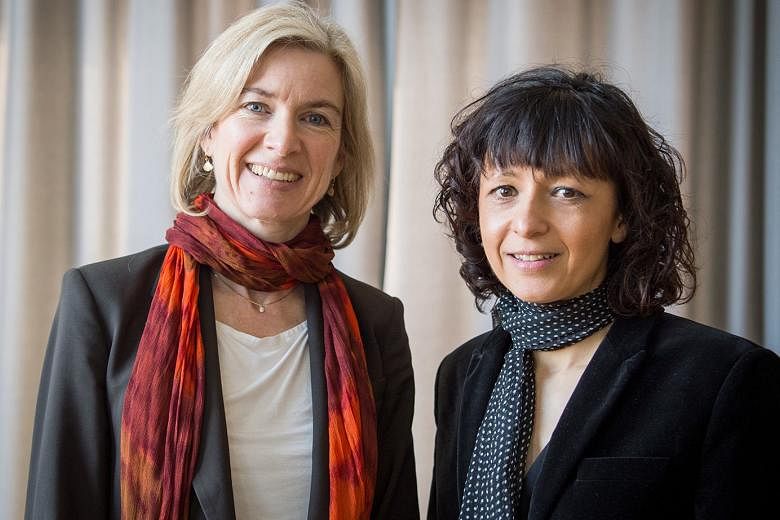STOCKHOLM • Two women scientists yesterday won the 2020 Nobel Prize in chemistry for creating genetic "scissors" that can rewrite the code of life, contributing to new cancer therapies and holding out the prospect of curing hereditary diseases.
French researcher Emmanuelle Charpentier and American Jennifer Doudna share the 10 million Swedish kronor (S$1.5 million) prize for developing the Crispr/Cas9 tool to edit the DNA of animals, plants and micro-organisms with precision.
"The ability to cut the DNA where you want has revolutionised the life sciences," Professor Pernilla Wittung Stafshede of the Swedish Academy of Sciences told an award ceremony.
Professor Charpentier, 51, and Professor Doudna, 56, become the sixth and seventh women to win a Nobel for chemistry, joining Marie Curie, who won in 1911, and Professor Frances Arnold in 2018.
It is the first time since 1964 that no men are among the winners of the chemistry prize.
Prof Charpentier, of the Max Planck Institute for the Science of Pathogens in Berlin, said she was "very emotional" after learning of the news.
"When it happens, you are very surprised and you feel that it is not real," she said. "But obviously, it is real so I have to get used to it now."
The path from discovery to prize has taken less than a decade - a relatively short period by Nobel standards.
Although Crispr had been widely tipped to win the chemistry prize, there has also been concern about possible misuse of the technology, for example, to create made-to-order "designer babies".
"The enormous power of this technology means that we need to use it with great care," said Professor Claes Gustafsson, chairman of the Nobel Committee for Chemistry. "But it is equally clear that this is a technology, a method that will provide humankind with great opportunities."
Crispr is a crowded field, with multiple claims on discovery leading to fierce patent disputes. Prof Gustafsson deflected a question on whether the prize committee had considered other contenders for the award.
REUTERS

